Al-Qaeda claims responsibility for Ivory Coast attack
At least 16 people killed after 'calm' gunmen open fire in popular Grand Bassam beach resort
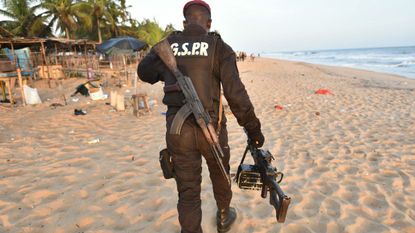
Gunmen who attacked a popular Ivory Coast beach resort on Sunday were working on behalf of Al-Qaeda, a faction of the terror group has claimed.
Al-Qaeda in the Islamic Maghreb (AQIM) said it was responsible for the carnage at Grand Bassam, on the south-east coast. At least 16 people were killed, including four Westerners and two soldiers, authorities say.
Witnesses described how gunmen wearing balaclavas shouted "Allahu akbar" as they "calmly" walked along the waterfront on Sunday lunchtime, firing on beachgoers with AK-47 rifles.
Subscribe to The Week
Escape your echo chamber. Get the facts behind the news, plus analysis from multiple perspectives.

Sign up for The Week's Free Newsletters
From our morning news briefing to a weekly Good News Newsletter, get the best of The Week delivered directly to your inbox.
From our morning news briefing to a weekly Good News Newsletter, get the best of The Week delivered directly to your inbox.
Yves Losseau, a Belgian national who was on the beach, told Belgian national radio how he and others attempted to take refuge in a hotel. "I saw one of the attackers approach the hotel garden and I saw him shoot dead a European woman," he said. "After the attacker shot the woman, he walked away calmly."
Ivorian authorities say security forces have "neutralised" six armed men in connection with the attack. A final death tally has not been confirmed and the UK Foreign Office is working to establish if any British nationals were among the victims.
For more than 30 years under president Felix Houphouet-Boigny, Ivory Coast was seen as a model example of a prosperous and stable African nation. Since his death in 1993, political and religious tensions have risen between the majority Christian south and Muslim rebels in the north, culminating in a five-year civil war in 2002 and another conflict in 2010.
This weekend's attack suggests attempts to keep domestic Islamic militants pinned in the north may have failed. "They were sub-Saharan Africans," a local trader told The Guardian. "Even though they wore balaclavas, everyone saw they had brown hands."
AQIM, which originated in Algeria but has since spread into sub-Saharan Africa, has previously claimed responsibility for the November 2015 attacks on hotels in neighbouring Mali and this January's killings in Burkina Faso.
Create an account with the same email registered to your subscription to unlock access.
Sign up for Today's Best Articles in your inbox
A free daily email with the biggest news stories of the day – and the best features from TheWeek.com
-
 You Are Here: the new David Nicholls 'past-their-prime' romance
You Are Here: the new David Nicholls 'past-their-prime' romanceThe Week Recommends 'Midlife disenchantment' gives way to romance for two walkers on a cross-country hike
By Adrienne Wyper, The Week UK Published
-
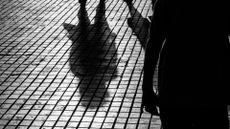 The new powers to stop stalking in the UK
The new powers to stop stalking in the UKThe Explainer Updated guidance could help protect more victims, but public is losing trust in police and battered criminal justice system
By Harriet Marsden, The Week UK Published
-
 'Criminal trail?'
'Criminal trail?'Today's Newspapers A roundup of the headlines from the US front pages
By The Week Staff Published
-
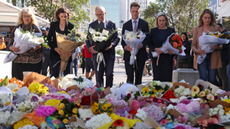 Sydney mall attacker may have targeted women
Sydney mall attacker may have targeted womenSpeed Read Police commissioner says gender of victims is 'area of interest' to investigators
By Julia O'Driscoll, The Week UK Published
-
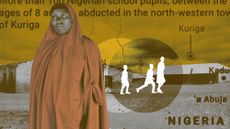 Why are kidnappings in Nigeria on the rise again?
Why are kidnappings in Nigeria on the rise again?Today's Big Question Hundreds of children and displaced people are missing as kidnap-for-ransom 'bandits' return
By Julia O'Driscoll, The Week UK Published
-
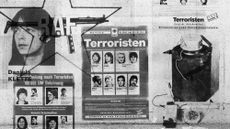 The Red Army Faction: German fugitive arrested after decades on run
The Red Army Faction: German fugitive arrested after decades on runWhy Everyone's Talking About Police reward and TV appeal leads to capture of Daniela Klette, now 65
By The Week UK Published
-
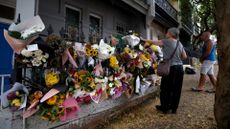 Deaths of Jesse Baird and Luke Davies hang over Sydney's Mardi Gras
Deaths of Jesse Baird and Luke Davies hang over Sydney's Mardi GrasThe Explainer Police officer, the former partner of TV presenter victim, charged with two counts of murder after turning himself in
By Austin Chen, The Week UK Published
-
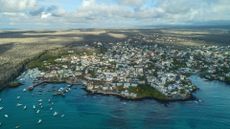 How the idyllic Galapagos Islands became staging post in world drug trade
How the idyllic Galapagos Islands became staging post in world drug tradeUnder the radar Ecuador's crackdown on gang violence forces drug traffickers into Pacific routes to meet cocaine demand
By Harriet Marsden, The Week UK Published
-
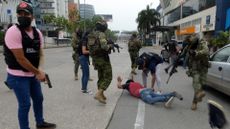 Armed gangs, prison breaks and on-air hostages: how Ecuador was plunged into crisis
Armed gangs, prison breaks and on-air hostages: how Ecuador was plunged into crisisThe Explainer Gangs launch deadly revenge after president declares state of emergency following escape of feared drug boss from prison
By Harriet Marsden, The Week UK Published
-
 Ecuador tips toward chaos amid prison breaks, armed TV takeover
Ecuador tips toward chaos amid prison breaks, armed TV takeoverSpeed Read New President Daniel Noboa authorized the military to 'neutralize' powerful drug-linked gangs after they unleashed violence and terror across Ecuador
By Peter Weber, The Week US Published
-
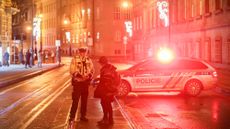 Prague shooting: student kills 14 people at university
Prague shooting: student kills 14 people at universitySpeed reads Police believe suspect, who killed himself, may have shot his father before carrying out mass murder
By Arion McNicoll, The Week UK Published